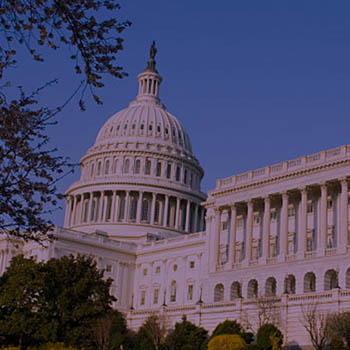
Connecticut General Assembly
Higher Education and Employment Advancement Committee
Legislative Office Building, Room 1800
Hartford, CT 06106
Clerk: Jeanie B. Phillips
RE: H.B. 5113, An Act Requiring Legislative Approval for The Merger or Closing of Institutions Within the Connecticut State Colleges and Universities
Dear Chairman Haddad, Chairman Haskell, and Ranking Members Hall and Hwang:
On behalf of the Association of Governing Boards of Universities and Colleges (AGB), I respectfully submit this letter in opposition to H.B. 5113, which would grant the General Assembly final authority on merging or closing any of the 17 state colleges and universities governed by the Board of Regents for Higher Education.
The Connecticut Board of Regents is the governing body of the institutions it oversees. It is responsible for everything that happens, or fails to happen, under its purview. Over the next several years, experts predict declining enrollments across the United States, leading many more boards to consider institutional affiliations, mergers, consolidations, and in rare cases, closures. These important discussions will be challenging, and governing boards along with state higher education leaders will certainly consider all options before voting for the path that supports state and system priorities—mainly student success—and that minimizes any potential negative impacts on students, faculty, staff, and other constituents. Boards keep their constituents and stakeholders at the heart of all decisions.
For almost 100 years, AGB has been recognized as the nation’s trusted advisor on matters related to higher education board governance. AGB’s membership includes the governing and coordinating bodies of some 2,000 colleges, universities, and institutionally related foundations. We work with state and institution leaders and their board members to provide education and counsel to more than 50,000 leaders across higher education. AGB has shaped best practices in board governance and is committed to advancing policies that strengthen and improve higher education leadership. I hope you will give my comments serious consideration as you debate H.B. 5113.
Effective boards receive input from a variety of stakeholders and constituents during the decision-making process. Boards discuss different perspectives from constituents, policymakers, and members of the public, especially when the board is voting on a topic as serious as a merger or consolidation. In fact, AGB’s 2018 state policy brief, Guidelines for Reviewing State Higher Education Governance Structures, encourages boards and policymakers to “gauge the popular and political support for change” if they are considering a merger or any other kind of restructuring. At the same time, states have an obligation to help set priorities for higher education through a master plan or public agenda that includes industry partnerships, regional workforce development goals, strategies for productivity and cost savings, and goals for student access, completion, and attainment. Broad and inclusive dialogues about these topics should be encouraged. However, H.B. 5113 encroaches upon, if not preempts, the independent decision-making authority of the Regents. H.B. 5113 can lead to legislative politicking over the fate of a college campus, and this practice should be avoided whenever possible.
H.B. 5113 is problematic because it undermines the Board of Regents’ ability to fulfill its fiduciary responsibilities. As noted prominently in AGB’s publication Higher Education Governing Boards: An Introductory Guide for Members of College, University, and System Boards, ensuring fiscal integrity and safeguarding institutional autonomy are two of the most fundamental responsibilities of a governing board. The Connecticut General Assembly correctly reinforced that expectation in Chapter 10a-6 by stating that “the policies of the state system of higher education shall be consistent with (1) the following goals: … (D) to assure the fullest possible use of available resources in public and private institutions of higher education…. [and] (G) to foster flexibility in the policies and institutions of higher education to enable the system to respond to changes in the economy, society, technology and student interests…” H.B. 5113 interferes with these responsibilities because it grants the legislature the power to approve or veto any consolidation efforts that the Regents have already deemed necessary to ensure success toward system and state goals for higher education, in conflict with their fiduciary responsibilities as well as (D) and (G) of Chapter 185, Section 10a-6. Compromising the Board’s authority inevitably will lead to a weakened governing system of higher education in Connecticut.
Several other higher education systems, including Georgia, Maine, Vermont, and Wisconsin have considered similar kinds of restructuring efforts. While not an exhaustive list, each of these states has completed, or is undergoing, a consolidation or merger process for multiple campuses. The choice to consolidate or merge is a responsibility of each state’s respective governing boards. AGB recommends three pieces of best practice for state policymakers, as laid out in our report Consequential Board Governance in Public Higher Education Systems. Policymakers should ensure that the governing board has appropriate financial control (commensurate with high expectations for board leadership); exercise care in shaping the board (in this case, through the four appointments from legislative leadership); and help to prepare governing board members for informed and diligent public service. These practices will advance higher education in the state without encroaching on board fiduciary responsibilities.
I urge the members of this committee not to interfere with the ability of the Board of Regents to fulfill its fiduciary duties. If you or the committee would like to discuss these matters, please feel free to reach out to AGB at ctoutsi@agb.org or 202-776-0845.
Respectfully,

President and CEO
Association of Governing Boards of Universities and Colleges

